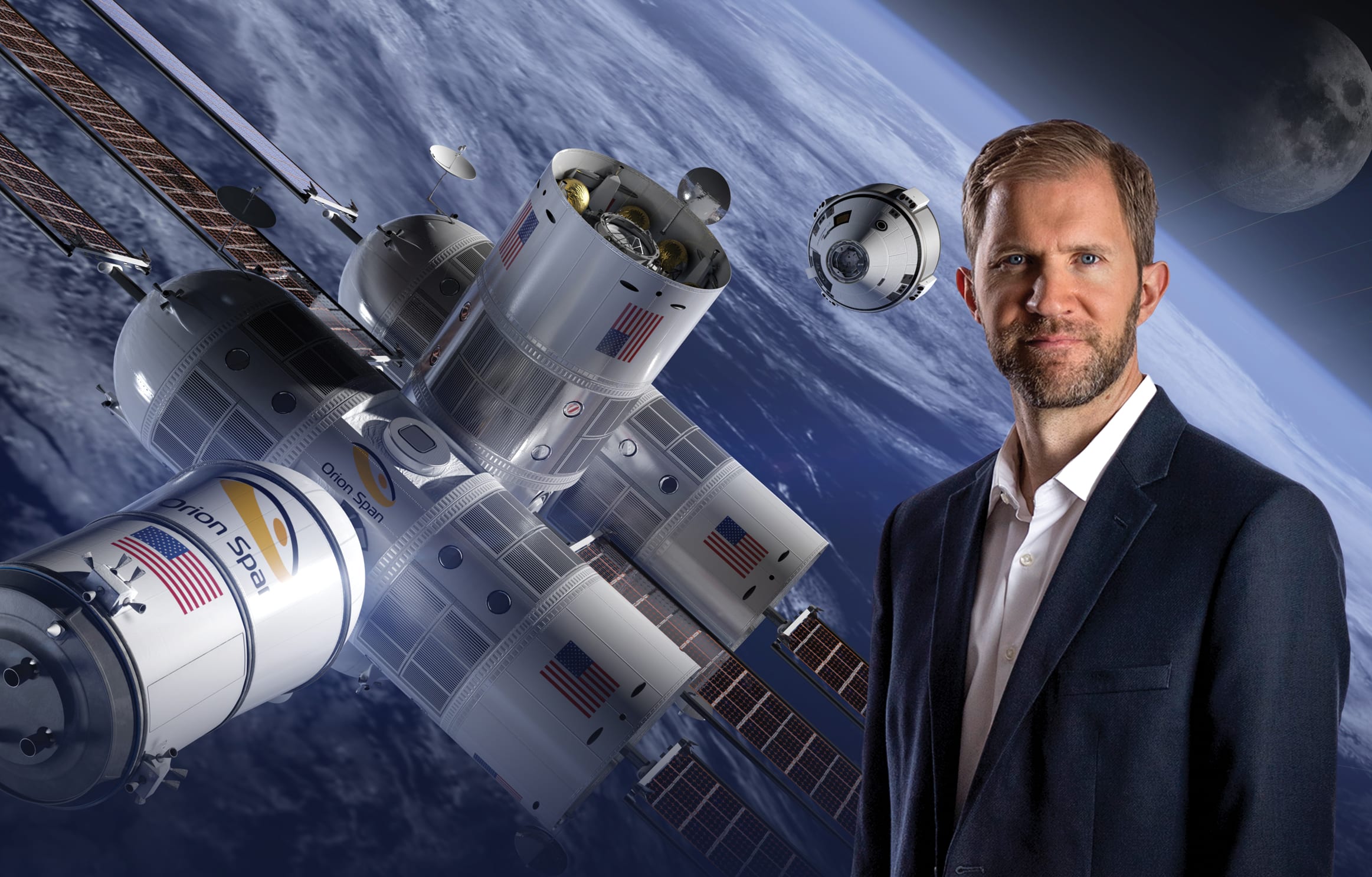
When Frank Bunger was young, he dreamed of being an astronaut. There was only one problem. “I got motion sickness very easily,” he says. Bowing to the reality that he couldn’t very well carry Dramamine into space, Bunger shelved his early dream for an equally passionate pursuit—playing the trombone. He attended the New England Conservatory of Music and played with the Oakland Symphony Orchestra for a decade before starting a new career in software engineering.
His dreams of the stars never completely left him, though. So when Bunger attended the Evening & Weekend Berkeley MBA Program, he kept returning to the idea of creating a startup that would realize his space dreams and improve the accessibility of space to ordinary people like himself.
In his third year of the EWMBA program, he launched Orion Span with the ambitious goal of creating a luxury hotel in space by late 2021. “I would like to see people in my lifetime living and working in space,” he says. “This reality is only a question of when, not if. I want to push that forward.”
The timing seemed right to Bunger, as he took courses in advanced innovation and venture capital and private equity at Haas. Companies like SpaceX and Blue Origin have opened up the possibility of launching tourists into space, but few companies have emerged to create extraterrestrial destinations for travelers to visit.
As new technologies such as 3D printing emerge to lower costs, Bunger envisions building a “human space flight platform,” called Aurora Station, that could serve as a stopover for astronauts while at the same time giving a once-in-a-lifetime opportunity for tourists to orbit Earth.
Potential space tourists would complete a three-month training program to prepare for the experience, which Bunger imagines will be just as much a part of the appeal as space flight. “More than 18,000 people applied for NASA’s most recent astronaut class,” he says.
Once in orbit, guests of Aurora Station would spend their time conducting real research, exploring weightlessness, and watching some of the 16 sunsets and sunrises each day as the station completes its 90-minute orbit around Earth.
Of course, there will also be ample time to video chat with envious friends back home, Bunger says. He’s already raised some $1 million from angel investors for the company and is in the process of raising the $20 million he’ll need to achieve engineering completion. If he succeeds at launching the space hotel, the experience will remain an exclusive one—at least in the beginning.
All-inclusive costs for the first space travelers will start at $9.5 million. Bunger hopes that as costs of space flight continue to fall, prices for the hotel will also decline to bring it in reach for others. As CEO of the company, however, he doesn’t plan on waiting to experience space flight himself. “I do intend to be in the first few flights for sure,” he says. “For me, it’s literally a dream come true.”